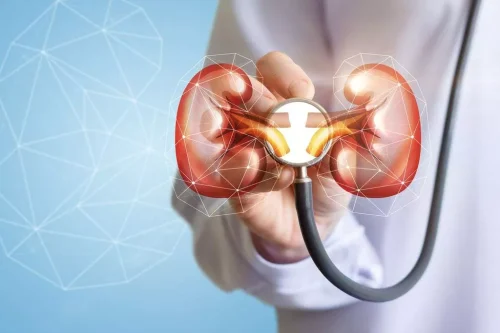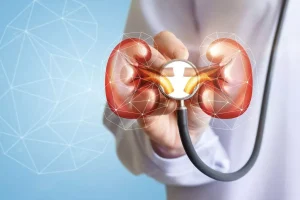
Do you know someone who struggles with alcoholism and also displays patterns of narcissism? These two conditions can be related, and it’s essential to understand their similarities and differences. I worked in drug and alcohol rehab for a short time in my 20s after I got my psychology degree and I’ve trauma bonded to many narcissists in my life. AddictionResource.net, and its parent company Recovery Guide LLC, is not a provider of substance use disorder treatment services and receives compensation from Treatment X LLC in the form of paid advertising. The helpline at AddictionResource.net is available 24/7 to discuss the treatment needs of yourself or a loved one.
Attention-Seeking
However, beneath their outward appearance of humility, they still prioritize their own needs and desires above others and struggle with empathy and genuine emotional connection. The latest 401k, Medicare, and Social Security news — in your inbox — every morning. Ryan Hart is a licensed insurance agent, writer, and former home designer. He is on a mission to help couples protect their homes in retirement with life insurance and annuities. Recovery requires taking responsibility for your actions and acknowledging the harm you may have caused others. Taking responsibility for your actions can be an uncomfortable and difficult process, but it is crucial to making amends and moving forward.

How to cope with the challenges of relating with narcissists or addicted people
An integrated approach addressing both NPD and AUD is often necessary, with a focus on improving self-awareness, empathy, and coping mechanisms to manage the addiction. Someone who has a diagnosis of Narcissistic Personality Disorder (NPD) experiences grandiose, arrogant behavior patterns that are coupled with a lack of empathy and need to be admired. These behaviors are at the expense of other people, including loved ones. Patience and support are therefore needed to ensure the best possible outcomes. Without treatment, people with NPD have trouble maintaining positive relationships and are vulnerable to misusing drugs and alcohol to cope with difficult emotions.

Follow us on social media
For a narcissist, it can be challenging to maintain a genuine connection with others, as they tend to have a strong need for attention and a sense of entitlement. As they work through are all alcoholics narcissists their 12-step program, they may begin to confront the manipulative and self-destructive tendencies in their behavior. At Sabino Recovery, a renowned addiction treatment center, you will have access to expert resources and support tailor-made to treat the psychological and emotional consequences of alcoholic narcissism.
- Both narcissistic personality disorder and alcoholism are treatable conditions, but getting an alcoholic narcissist to accept help is notoriously difficult.
- Supporting a loved one struggling with narcissism and alcoholism can be difficult, but it is important to approach the situation with compassion and understanding.
- If the person does not want to enter treatment or change, there may not be hope for healing.
- Understanding alcoholic narcissism involves recognizing the combination of narcissistic traits and alcohol addiction, and being aware of the complex nature of this dual condition.
For example, perhaps types of drinking motives (e.g., conformity or coping) differentially mediate the relationship between narcissism subtypes and alcohol outcomes. Moderators such as positive or negative affect or reward sensitivity might affect the strength of the associations found in this study. In addition, future research could include more ethnically diverse samples to determine if the associations found here differ for students of diverse racial and ethnic backgrounds. First, it demonstrates that there are both adaptive (i.e., grandiose fantasy) and maladaptive (i.e., devaluing others) aspects to narcissism in relation to drinking outcome variables. Second, our current study highlights that men are more likely to exploit others than women. Lastly, our study showcases that the vulnerable narcissism aspect of devaluing-the-self/others drives the relationship to impaired-control-over-drinking.

Groups that provide support, such as 12-step programs, are an important resource for those in recovery. The purpose of these groups is to provide a safe and supportive environment where you can share your struggles and receive encouragement and guidance from others. Reality reminded them all the time that their fantasy self was false — that they lacked empathy and were stunted in some way, and Alcoholics Anonymous that their relationships were full of chaos. Preliminary analyses were conducted to determine the ranges and distributions of variables. Two participants were considered multivariate outliers and excluded from the analysis due to unreliable response style. Additionally, 36 participants were excluded from the analysis because they took the survey in less than 600 seconds (10 minutes).
- This implies that someone who frequently devalues the self/others may be more likely to devalue standards they set for themselves or standards that society values, such as limitations on alcohol consumption.
- NIH/NIAA grant KO1AA024160–01A1 to Julie A. Patock-Peckham; Burton Family Foundation’s (FP11815) grant to Social Addictions Impulse Lab (SAIL).
- No studies examined associations between narcissism and alcohol problems, problem expectancies, problem evaluation and readiness to change.
- Studies suggest that “narcissists have higher cortisol and cardiovascular reactivity in socially threatening situations” and experience more stress.
Is There a Connection Between Alcoholism and Narcissism?
According to the National Institute of Mental Health, 22.6% of people with a personality disorder may also have a substance misuse disorder. It is not uncommon for two mental health conditions to co-exist (referred to as a comorbidity). The occurrence of two such conditions is called a dual diagnosis or co-occurring disorders. Not all narcissists are alcoholics, nor are all alcoholics narcissists, although alcoholism often causes people to develop narcissistic traits, such as arrogance, self-absorption, and a lack of empathy.
Why Narcissists Are at Risk of Alcohol Addiction

Vulnerable narcissism, on the other hand, emerged as a risk factor for alcohol-related problems. Vulnerable narcissism also contributes to people’s expectation and recognition of alcohol problems. This study highlights the importance of individual differences in alcohol-related outcomes in a high risk population of college students.
The Cycle of Addiction and Narcissism
They are the people who support and encourage the narcissist’s behavior, even if it is harmful to themselves or others. Narcissists don’t really understand or care about others’ feelings, and they think they can do whatever they want, even if it hurts others. Similarly, alcoholics are really good at finding ways to get alcohol, even if it means breaking rules.
Enablers may provide the narcissist with financial support, emotional validation, and other resources to maintain their lifestyle. They may also shield the narcissist from the consequences of their actions, such as legal or financial problems. This behavior reinforces the narcissist’s sense of entitlement and reinforces their belief that they are above the rules. Coping with an alcoholic narcissist can be challenging, and setting clear boundaries to protect yourself is important. This may mean limiting your exposure to their behavior or seeking support from friends and family.

Recent Comments